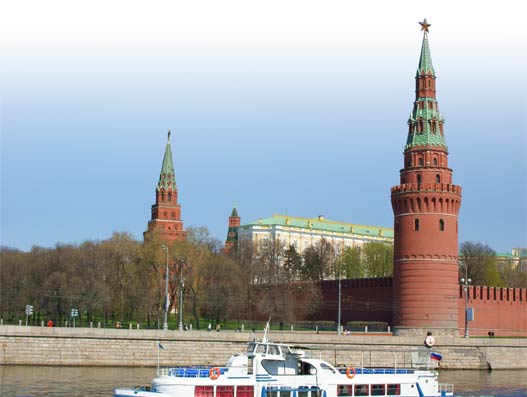
Rich in culture richer in trade
The city by the Moskva River boasts of an enviable cultural and trade history and today it is among the top ten most expensive cities in the world. Commenting on the current state of affairs in Russia a report in The New York Times said that today “Russia’s tanks are getting more international attention than […]

The city by the Moskva River boasts of an enviable cultural and trade history and today it is among the top ten most expensive cities in the world.
Commenting on the current state of affairs in Russia a report in The New York Times said that today “Russia’s tanks are getting more international attention than its banks, leaving Moscow City as a $12 billion reminder of the nation’s economic woes.” With Western economic and trade sanctions on Russia over its alleged support of rebel forces in Ukraine the country’s economic woes have been on the rise.
According to the European Union’s statistics office Eurostat, in August this year, the month after sanctions were imposed, EU exports to Russia fell 19 percent to 7.9 billion Euros ($9.91 billion) compared to July, a loss of almost two billion Euros.
However, the Russian economy and the city of Moscow is expected to rebound because the city has rich history of culture and trade and ready infrastructure to attract global trade and investments.
Earlier this year the Russian government announced a $28 billion plan to overhaul the aviation industry by 2025 to match up to the world’s top three aircraft manufacturers.
Recently Gulf Air, Bahrain’s national carrier, launched its direct services to Moscow. “We are looking forward to an extensive use of the new route by various segments to reinforce bilateral ties and cooperation,” said Maher Salman Al Musallam, the airline acting CEO, while launching the service. Gulf Air said that it would operate four flights a week to Moscow.
Moscow Domodedovo Airport (DME) is the largest air hub in Russia. During the ten months of 2014 the passenger traffic of DME amounted to 28.69 million passengers that is 7.9 percent more year over year. The number of flights increased by 6.5 percent. The airport’s cargo traffic in January-October of 2014 amounted to 153,000 tons and it is 5.7 percent less than in the same period last year.
“Due to our leading position in Moscow Air Hub (MAH) and in Russia and our proactive policy as well the reduction of cargo traffic in DME is not as high as in the whole country (-7.9 percent) and in MAH (-9.9 percent). Decrease of cargo volumes in general results from such factors as, for example, the instability of currency rates, the declining oil prices, the serious political instability in the world. Due to these factors the carriers start to use cheaper ways of cargo transportation (e.g. highway transport, water carriage). According to the statistics (using the example of the crisis of 2008/2009), the cargo traffic is often the first to “respond” to the difficulties on market, because consumer goods are mainly used to be transported and demand for these goods is related to the economical environment in the world,” said Alexey Yarosh, Aviation Marketing Director, DME.
As part of improving the cargo services the airport organizes procedures for reception/delivery of domestic and international cargo from the “second line” warehouses located near the airport.
“We adopt the new technology of cargo handling - for the moment palletized cargo is handled on ULD and it doesn’t require cargo to be unconsolidated. The new procedure helps us to move to a new level of engagement with the main clients of international carriers because it speeds up the process of freight customs clearance. The technology of palletized cargo handling becomes widely used on international and domestic flights,” added Yarosh.

